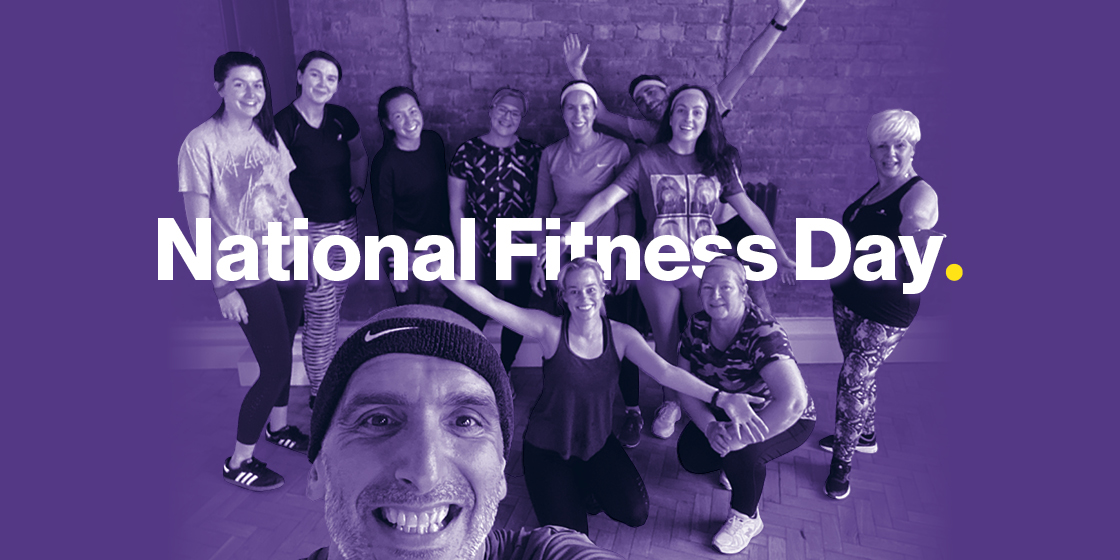On Wednesday, we celebrated National Fitness Day with a team HIT session. Yesterday, the aches and pains, groans and moans, proved those who took part should get 100% for effort.
National Fitness Day was founded by énergie Fitness in 2011 to dedicate a whole day to the importance of physical activity, before being gifted to ukactive in 2014 to expand. Last year a record-breaking 22.7 million Brits took part. The campaign aims to highlight the role keeping fit plays across the UK, helping raise awareness of its importance in assisting us to lead healthier lifestyles through the ‘miracle pill’ of movement.
As we’ve been working on a pulmonary rehabilitation campaign for Greater Manchester Integrated Care over the last few months and have recently prepared a proposal around active lives, we’re definitely sold on the benefits of keeping mobile and with good reason.
In the most recent United Nations Human Development Index report, a record number of crises – unsurprisingly, Covid-19 being chief among them – has set global progress back five years, with life expectancy sliding backwards for two straight years after having risen year on year for decades. Whilst this report paints a grim picture, the fact that it doesn’t factor in the added impact of the Ukraine war this year, on food and energy stability, is concerning.
Significantly for the UK, according to the recent report Healthy Equity in England: the Marmot Review 10 years On, life expectancy in England has stalled since 2010. This can’t be linked to severe winters, as more than 80% of the slowdown results from influences other than winter-associated mortality. What’s clear, is that the more deprived the area – particularly some northern regions – the more significant the decrease. This is even the case for people under 50, with social and economic conditions undermining health for people aged between 45-49. So healthy life expectancy is even steeper than that of life expectancy, with more people spending more of their shorter lives in ill-health.
Currently, obesity-related illness costs the NHS £6 billion per year and with Covid disproportionately affecting overweight people, the significance of this can’t be ignored. Looking for innovative ways to create change, the Department of Health and Social Care, launched a pilot health incentive scheme early in 2022 based around wearables and an incentive driven App. Users collect points for healthy behaviour changes unlocking rewards such as gym passes, clothes or food vouchers and discounts for shops, cinema or theme park tickets. The scheme closely mirrors Singapore’s successful National Steps ChallengeTM, the world’s first population level, fitness tracker-based, physical activity initiative that encourages people to move more by rewarding them.
In 2021, Sports England launched its 10-year ‘Uniting the Movement’ strategy, to transform lives and communities through sport and physical activity. They recognise that there’s no quick fix to bringing equality and inclusivity to sport and activity, but they are committed to trying, championing a collective purpose that can help people live happier, healthier and more fulfilled lives. By providing local area insights, segmentation tools and demographic research, they are paving the way for more targeted and useful interventions, as they build up partnerships and fund initiatives.
Closer to home, in Manchester, Andy Burnham’s post-pandemic mission of delivering ‘Good Lives for All’ acknowledges that moving is key to keeping us physically and mentally healthy. Whilst promoting active lives at the heart of how we build back better, this will also be linked to a radically improved transport system across the borough, with the aim of getting the 2.8 million people of Greater Manchester moving more. In partnership with Greater Manchester Moving, a goal had been set to get 75% of local people active or fairly active by 2025 and by 2018/19, exceptional inroads had been achieved with 73.8% of the GM population hitting the target. And then Covid-19 impacted, setting the region back significantly, with inactivity rising to just under 44% in lower socio-economic groups and 32% in women. However, assisted by a variety of partners, the region is fighting back, taking on the challenge to still deliver its ambition of ensuring movement, sport and physical care are integrated into everyday lives to improve health.
Here at C21, we’re doing our bit to support this ambition. With busy working lives it’s often hard to find the time to fit in the gym, a walk or a class. So, we’ll now be introducing weekly keep fit sessions, alternating between HIT and yoga, as well as promoting walking meetings, to ensure we’re doing our bit to keep moving and stay healthy. Creating any sort of behavioural or culture change takes time but starting small can lead to big improvements, and we believe everyone deserves the opportunity to live their best life.



